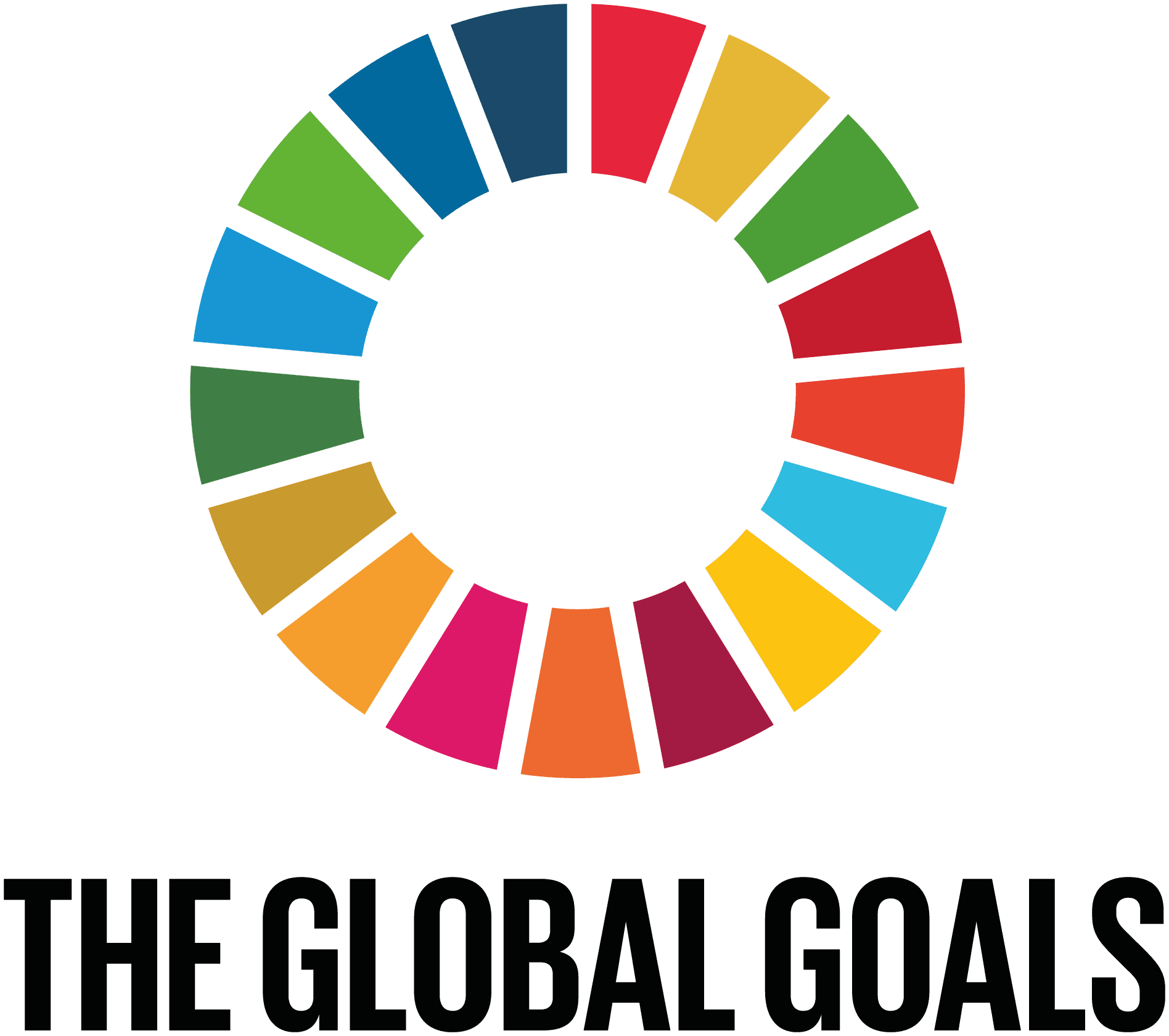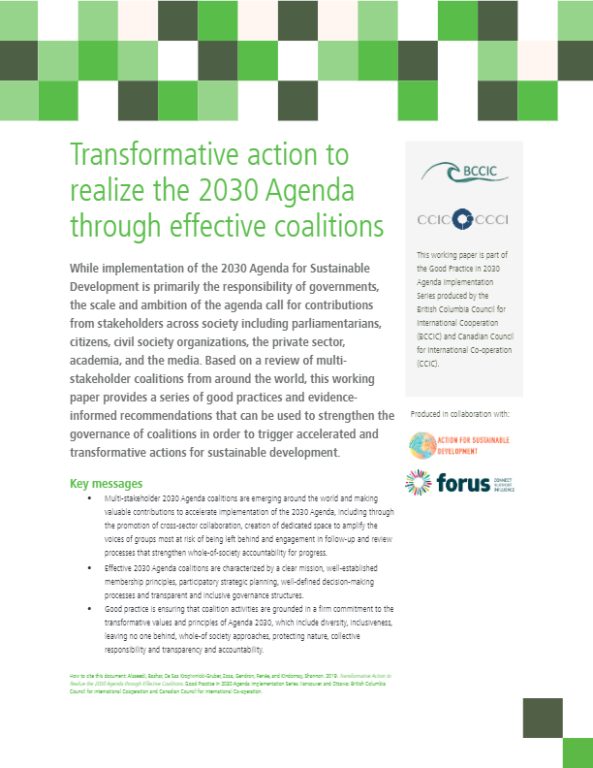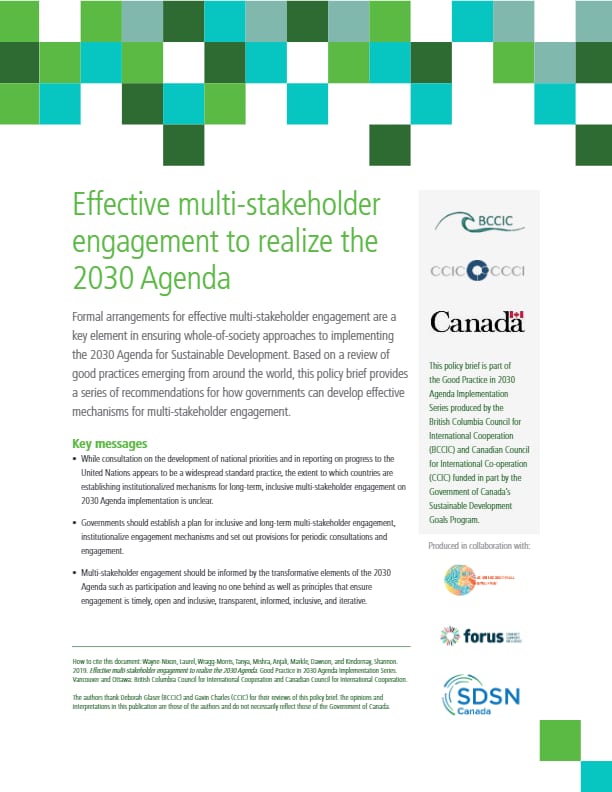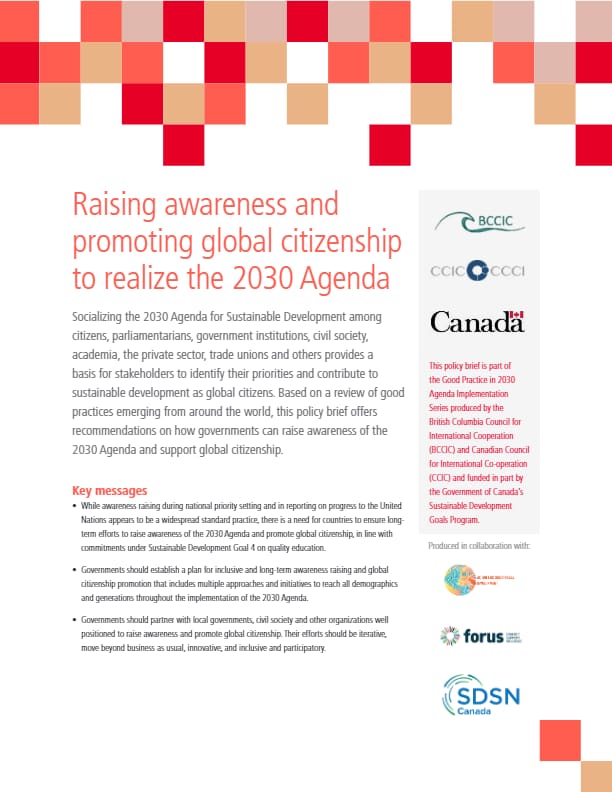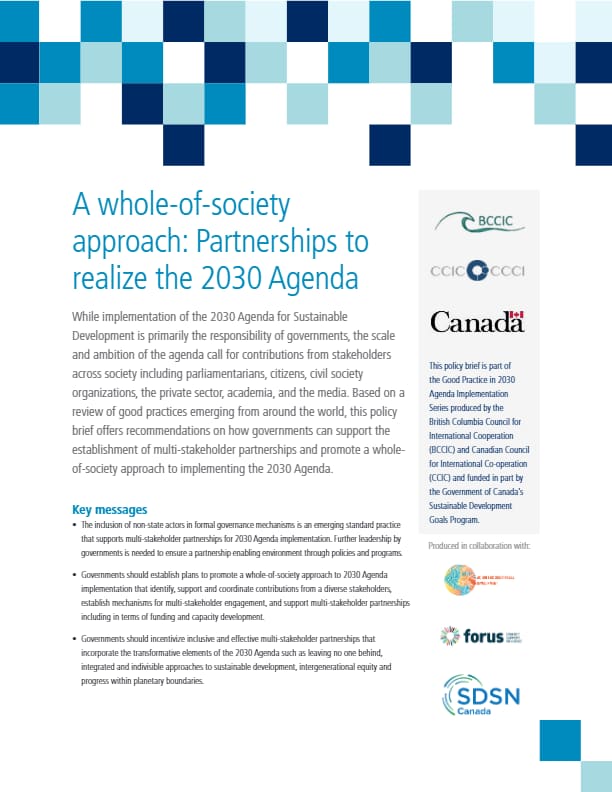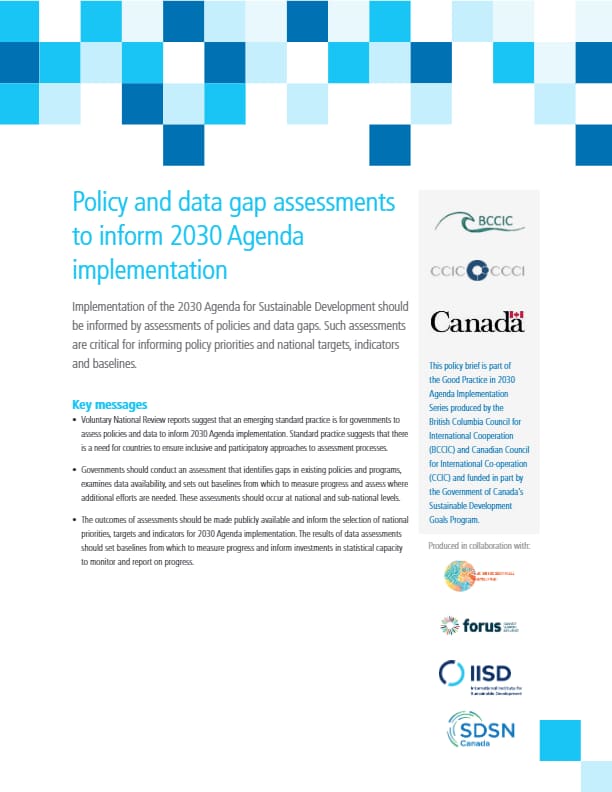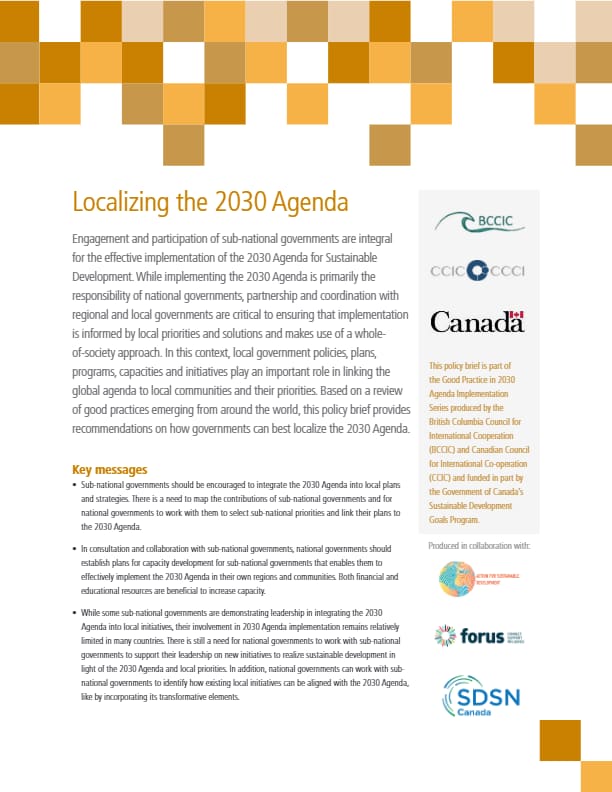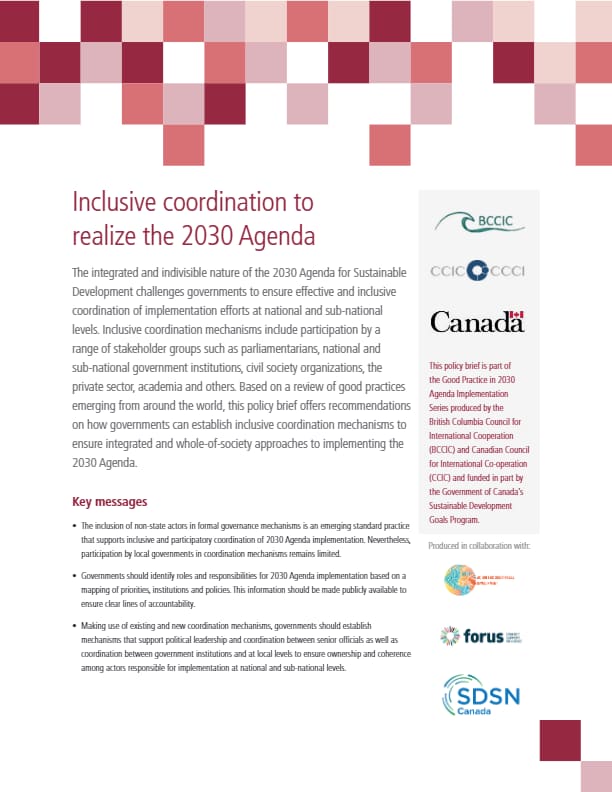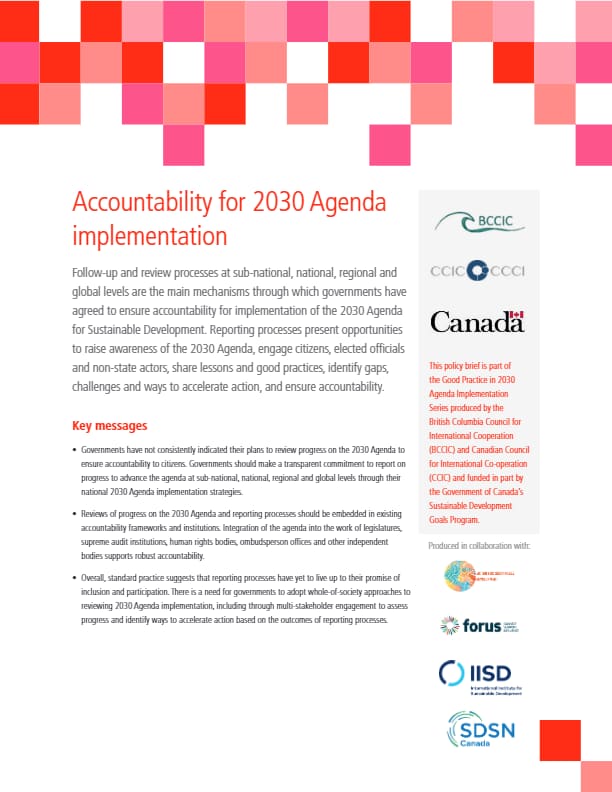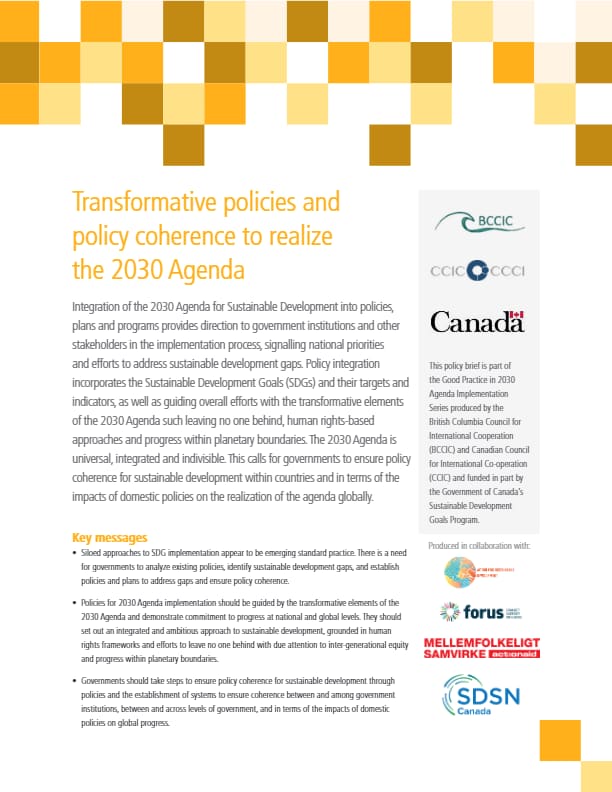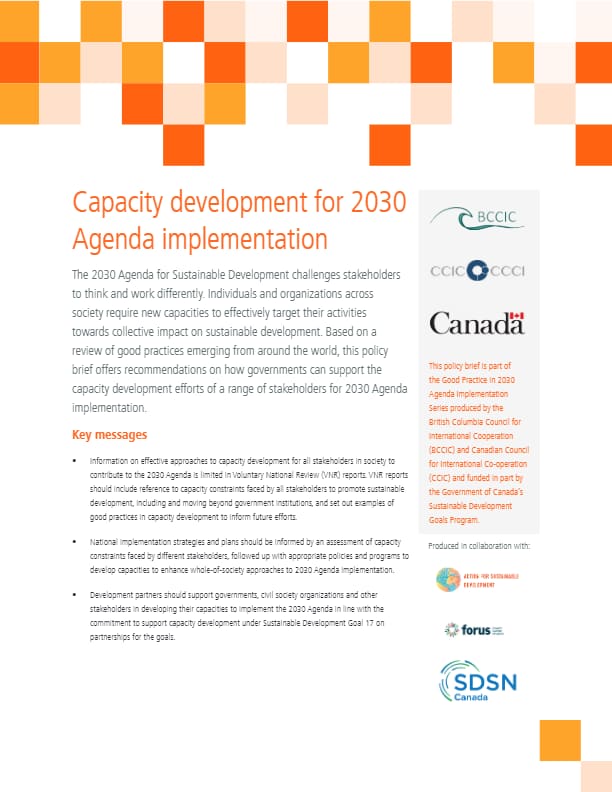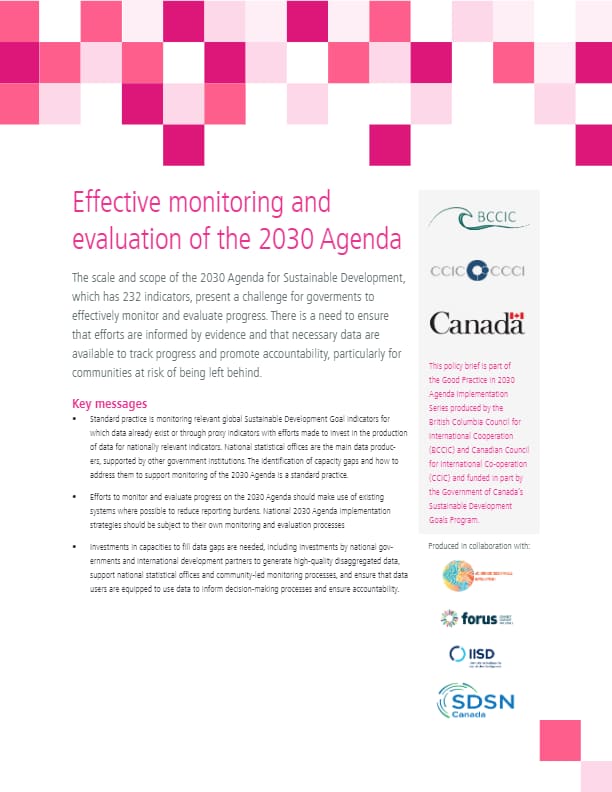Global Efforts to Implement the 2030 Agenda
Working Paper:
Transformative action to realize the 2030 Agenda through effective coalitionsPDF
While implementation of the 2030 Agenda for Sustainable Development is primarily the responsibility of governments, the scale and ambition of the agenda call for contributions from stakeholders across society including parliamentarians, citizens, civil society organizations, the private sector, academia, and the media. Based on a review of multi-stakeholder coalitions from around the world, this working paper provides a series of good practices and evidence-informed recommendations that can be used to strengthen the governance of coalitions in order to trigger accelerated and transformative actions for sustainable development.
Policy Briefs:
Effective multi-stakeholder engagement PDF
Formal arrangements for effective multi-stakeholder engagement are a key element in ensuring whole-of-society approaches to implementing the 2030 Agenda for Sustainable Development. Based on a review of good practices emerging from around the world, this policy brief provides a series of recommendations for how governments can develop effective mechanisms for multi-stakeholder engagement.
AnnexPDF
Raising awareness and promoting global citizenship PDF
Socializing the 2030 Agenda for Sustainable Development among citizens, parliamentarians, government institutions, civil society, academia, the private sector, trade unions and others provides a basis for stakeholders to identify their priorities and contribute to sustainable development as global citizens.
Based on a review of good practices emerging from around the world, this policy brief offers recommendations on how governments can raise awareness of the 2030 Agenda and support global citizenship.
AnnexPDF
A whole-of-society approach: Partnerships PDF
While implementation of the 2030 Agenda for Sustainable Development is primarily the responsibility of governments, the scale and ambition of the agenda call for contributions from stakeholders across society including parliamentarians, citizens, civil society organizations, the private sector, academia, and the media. Based on a review of good practices emerging from around the world, this policy brief offers recommendations on how governments can support the establishment of multi-stakeholder partnerships and promote a wholeof-society approach to implementing the 2030 Agenda.
AnnexPDF
Policy and data gap assessments PDF
Implementation of the 2030 Agenda for Sustainable Development should be informed by assessments of policies and data gaps. Such assessments are critical for informing policy priorities and national targets, indicators and baselines.
AnnexPDF
Localizing the 2030 AgendaPDF
AnnexPDF
Inclusive coordinationPDF
private sector, academia and others. Based on a review of good practices emerging from around the world, this policy brief offers recommendations on how governments can establish inclusive coordination mechanisms to ensure integrated and whole-of-society approaches to implementing the 2030 Agenda.
AnnexPDF
AccountabilityPDF
Follow-up and review processes at sub-national, national, regional and global levels are the main mechanisms through which governments have agreed to ensure accountability for implementation of the 2030 Agenda for Sustainable Development. Reporting processes present opportunities to raise awareness of the 2030 Agenda, engage citizens, elected officials and non-state actors, share lessons and good practices, identify gaps, challenges and ways to accelerate action and ensure accountability.
AnnexPDF
Transformative policies and policy coherencePDF
Integration of the 2030 Agenda for Sustainable Development into policies, plans and programs provides direction to government institutions and other stakeholders in the implementation process, signalling national priorities and efforts to address sustainable development gaps. Policy integration incorporates the Sustainable Development Goals (SDGs) and their targets and indicators, as well as guiding overall efforts with the transformative elements of the 2030 Agenda such leaving no one behind, human rights-based approaches and progress within planetary boundaries. The 2030 Agenda is universal, integrated and indivisible. This calls for governments to ensure policy coherence for sustainable development within countries and in terms of the impacts of domestic policies on the realization of the agenda globally.
AnnexPDF
Capacity developmentPDF
The 2030 Agenda for Sustainable Development challenges stakeholders to think and work differently. Individuals and organizations across society require new capacities to effectively target their activities towards collective impact on sustainable development. Based on a review of good practices emerging from around the world, this policy brief offers recommendations on how governments can support the capacity development efforts of a range of stakeholders for 2030 Agenda implementation.
AnnexPDF
Effective monitoring and evaluationPDF
The scale and scope of the 2030 Agenda for Sustainable Development, which has 232 indicators, present a challenge for goverments to effectively monitor and evaluate progress. There is a need to ensure that efforts are informed by evidence and that necessary data are available to track progress and promote accountability, particularly for communities at risk of being left behind.
AnnexPDF

